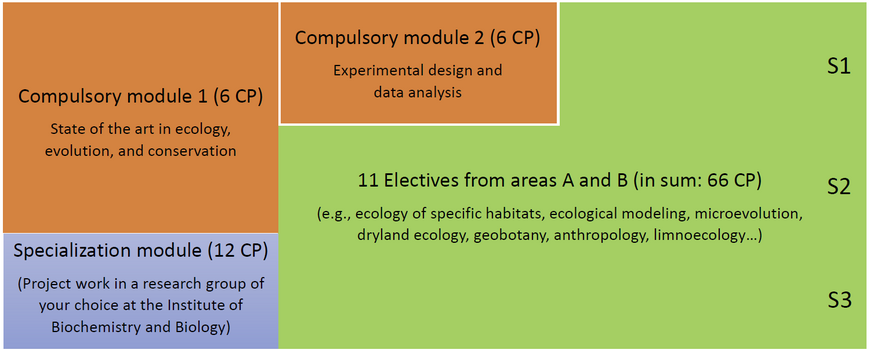Study plan
The curriculum is subdivided into individual modules, which are in turn composed of individual courses (lectures, seminars, practical courses and excursions). During the first two semesters, among other things, we aim to approximate the level of knowledge of all students in the three main topics of ecology, evolution and nature conservation. We also value highly a solid deepening of existing knowledge in the areas of experimental design, data collection and statistics, where profound methodological competence will be essential for all fields of activity of our graduates.
Based on two compulsory core modules 1 and 2 (see below), we offer a broad range of elective modules, which can be assembled according to individual interests. In doing so, we increasingly rely on intellectual freedom and individual self-responsibility in the compilation of the modules and the specialization each student strives to achieve.
The current list of modules and courses is described in the module manual.
For more detailed information on administration in the Master Ecology, Evolution and Conservation (ECC) please see the HowTo for students.
The master program in Ecology, Evolution, and Conservation consists of the following modules:
- Core module 1 (6 Credit Points = CP): State of the Art in Ecology, Evolution, and Conservation and
Core module 2 (6 CP): Experimental design and data analysis (statistics) - Elective modules A and B (66 CP from the courses offered by the Institute of Biochemistry and Biology and from the Faculty of Science)
- Specialization module to prepare the Master thesis (12 CP)
- Master thesis (30 CP). Topics for master theses are closely intertwined with current research (see working groups).
In total, the Master program comprises 120 CP.
The image shows the study plan in four semesters:

